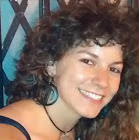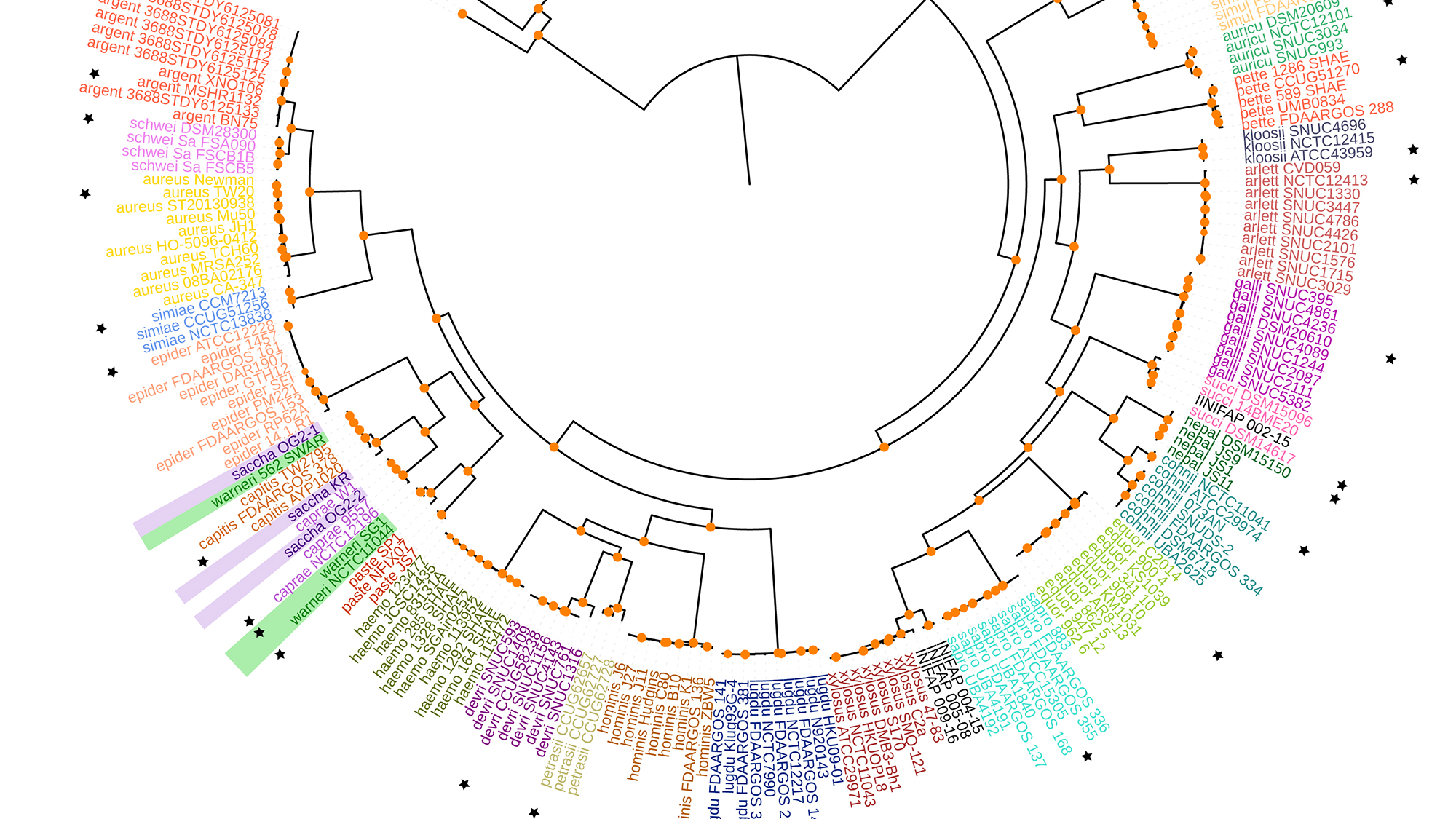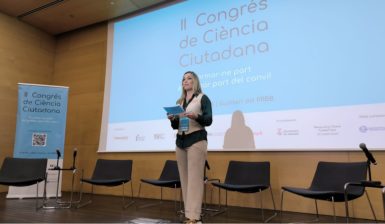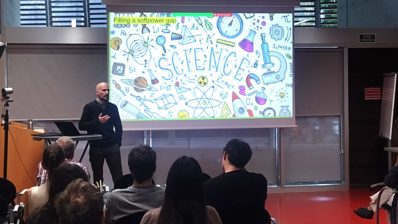Due to the COVID19 crisis, the vast majority of scientific meetings have been cancelled around the globe. The Society for Molecular Biology and Evolution meeting (SMBE2020, that usually congregates a few thousand participants), which was supposed to be held in Québec (Canada) in July, is amongst them.
Rosa Fernández and Jesús Lozano-Fernández, researchers at the Institute for Evolutionary Biology (IBE: CSIC-UPF), were supposed to contribute to the SMBE2020 meeting with a symposium entitled ‘Evolution through the lens of phylogenomics and comparative genomics’. Seeing as, during the abstract submission, this symposium was amongst the most popular ones, the pair decided to go ahead with its organization – virtually. Their aim is to spark networking and collaboration within the scientific community interested in these fields during this difficult situation.
This first Virtual Symposium on Phylogenomics and Comparative Genomics will therefore take place on July 16th and 17th via zoom – you can register here. It will be broadcasted from the Institute of Evolutionary Biology, and can be followed through social media under the hashtag #VirtualPhyloComp2020.
We speak with Rosa Fernández, one of the co-organisers.

What are the highlights of this online meeting?
The first main highlight of the symposium is the excellence of the speakers. And I have to say that it was surprisingly easy to get people on board, probably because there are not many other events or commitments and their agendas are more clear than usual this summer.
The other highlight is the inclusion of a PhD session, where all speakers are PhD students. We thought it was a great opportunity for PhD students to share their research with the scientific community. Because of this, the conference is attracting the attention both of senior researchers such as group leaders or postdoctoral fellows but also of PhD and master students.
Also, the conference is free of charge, which probably helped attracting scientists from all over the world that otherwise would not be able to pay the cost of attending this type of conferences in situ. So far, it’s been a success: as of today, more than 700 people have registered!
There is a specific session at the meeting focused on gender – why is that?
Gender balance amongst invited speakers continues to be a big problem in many conferences. The reasons are varied, for example:
- the organizers lack the awareness of gender issues, or
- they have difficulty finding female speakers, since it has been proved that female scientists are less ‘visible’ to the scientific community that their male counterparts, or
- female speakers decline invitations to participate due to travel constraints (e.g., due to childcare responsabilities, etc.).
Virtual conferences offer the opportunity to bridge this gap by increasing the participation and visibility of female scientists as it eliminates the logistic problems of attending conferences physically. In this context, we thought that it would be ideal to include a special session on how we can capitalize on virtual conferences to close the gender gap. Elena Gómez-Díaz, from the Institute of Parasitology and Biomedicine López Neyra (CSIC) will be giving a talk about easy ways to implement guidelines towards this goal.
“Gender balance amongst invited speakers is a big problem in many conferences.Virtual conferences offer the opportunity to bridge this gap by eliminating the logistic challenges of attending conferences physically”
Rosa Fernández (IBE:CSIC-UPF)
You seem to have done well for this meeting, with 9 male and 6 female speakers…
For us, gender balance was an essential point while selecting the speakers. It just takes a little bit more work to identify potential female speakers. As mentioned before, men tend to have more visibility in the scientific community and, as a consequence, most of the potential speakers that may come to your mind at first are men. But this is all it takes: just some more time. Our objective was to have at least 40% of female speakers, so it was as easy as sticking to it and dedicating a little bit more time. And I have to say, all of them were delighted to accept our invitation, so it was pretty easy after all.







